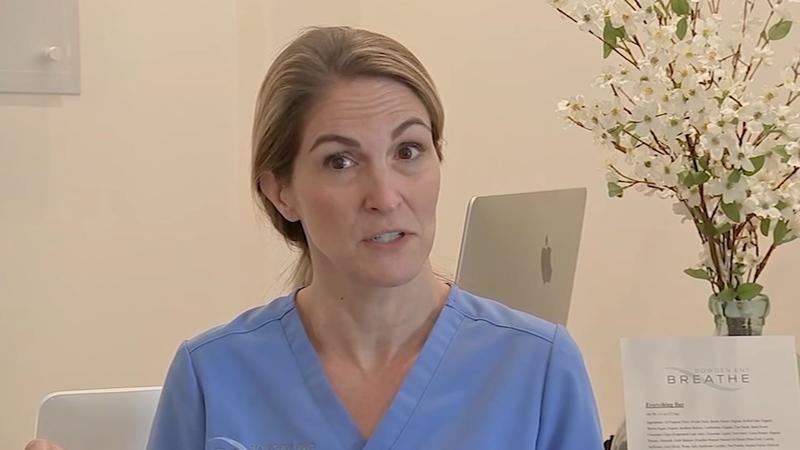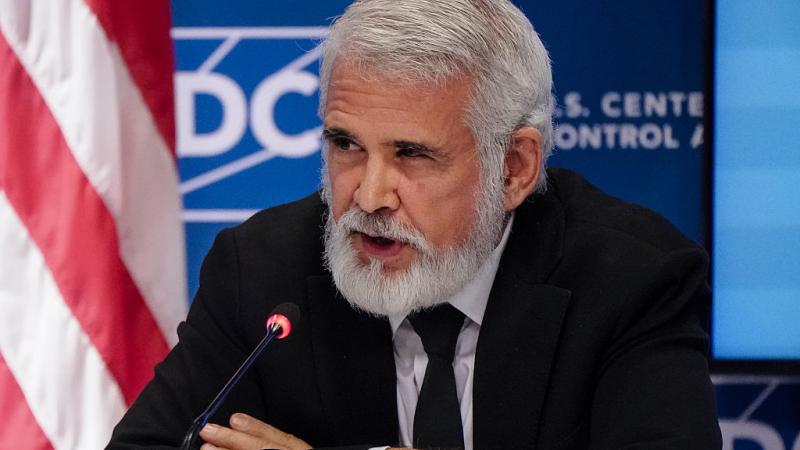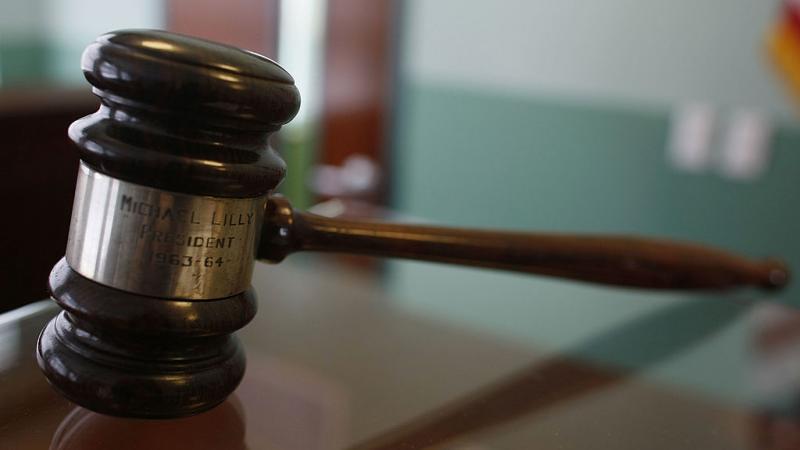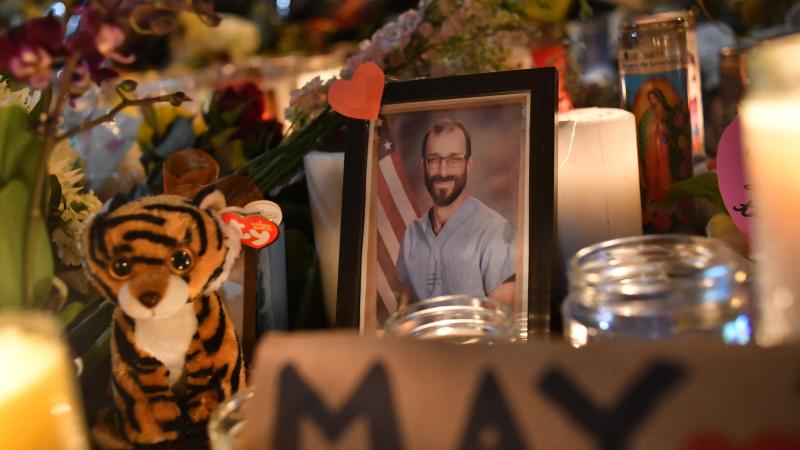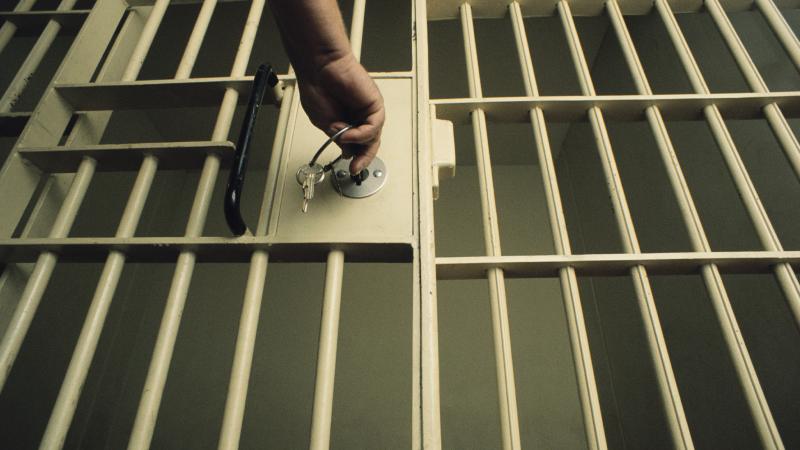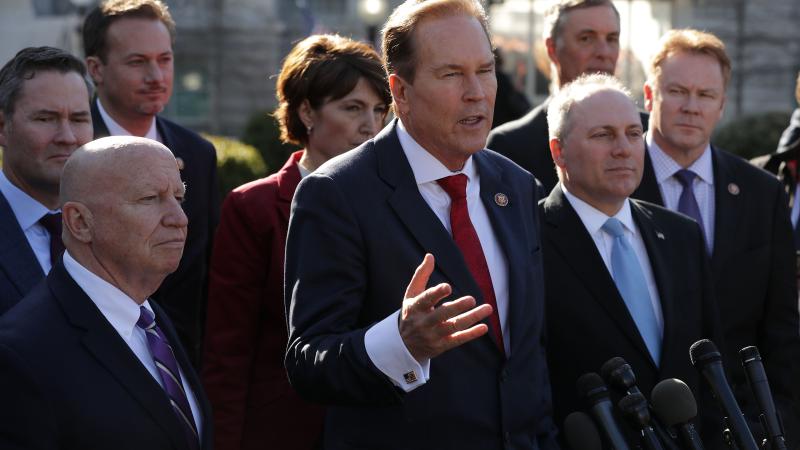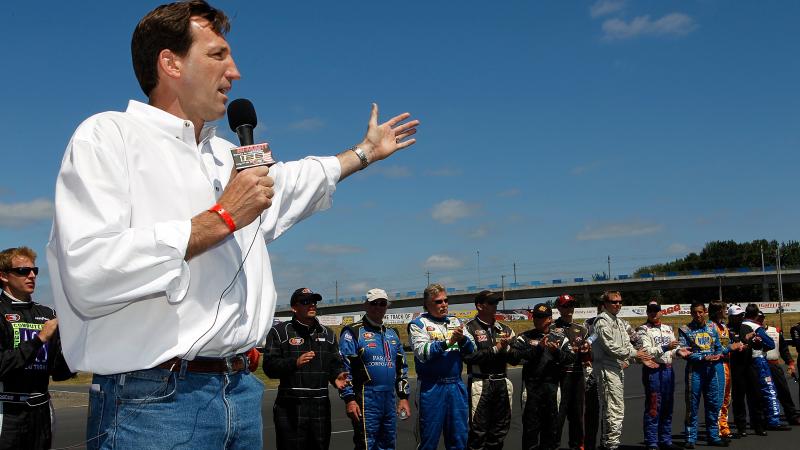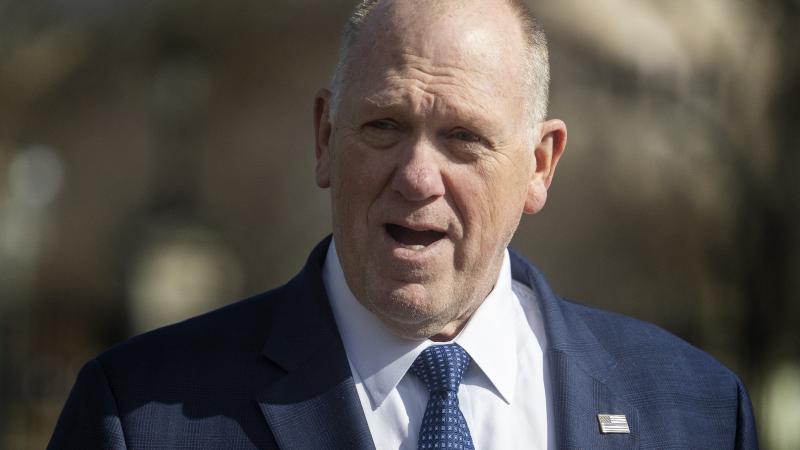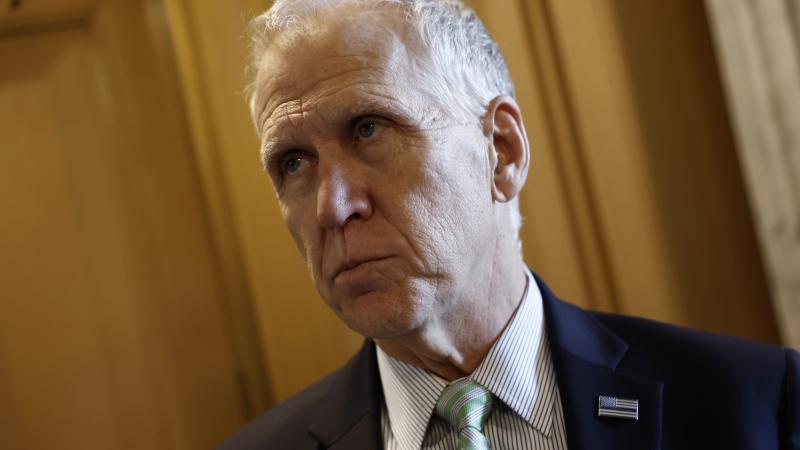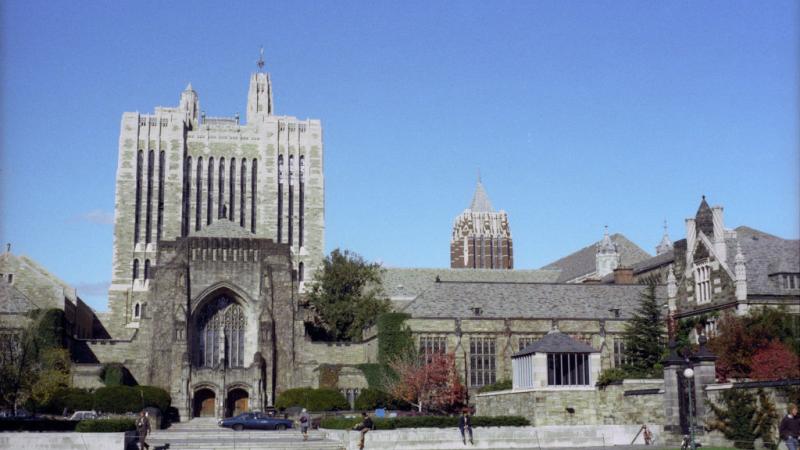COVID debate finally flourishing in academia, censored voices sought: 'Night and day different'
Great Barrington Declaration coauthor praises new leadership at Stanford for making his conference possible. Heterodox Academy planning second conference in December. Public universities in Florida, Emory, MIT get involved.
Four years ago, the then-directors of the National Institutes of Health and its National Institute of Allergy and Infectious Diseases privately plotted on how to marginalize and discredit epidemiologists who wrote the Great Barrington Declaration against COVID-19 lockdowns, school shutdowns and related policies as ineffective and harmful.
Stanford University officials tried to stop one author, its medical professor Jay Bhattacharya, from even researching the SARS-CoV-2 infection rate in its backyard, which revealed the virus was already widespread when lockdowns started and far less deadly than authorities claimed.
Faculty pushed Stanford to sanction Scott Atlas, its former radiology chief, for bringing an anti-lockdown voice to President Trump's coronavirus task force, and the campus newspaper even claimed Atlas threatened Michigan Gov. Gretchen Whitmer for her lockdown policies.
Observing the attempted purge of Atlas, the University of California's National Center for Free Speech and Civic Engagement held a meeting to discuss whether the Trump adviser even enjoyed academic freedom in his views on COVID, according to Freedom of Information Act productions recently posted by Twitter Files journalist Matt Taibbi's Racket.
Meeting notes show UC San Diego philosopher Dana Nelkin and UC San Francisco medical professor Suneil Koliwad suggesting that universities have an "obligation to deal with faculty who say and do things with significant chance to harm the public" when there are "basic and clear elements of 'right' and 'wrong'" on public health, Racket's James Rushmore reported.
The center's executive director, Michelle Deutschman, celebrated the "leadership" of Indiana University Bloomington Provost Lauren Robel when the latter told colleagues elsewhere, including then-University of Michigan President Mark Schlissel and UC Berkeley law dean Erwin Chemerinsky, that student "mask resistors … relented" when she threatened to "transfer" them.
Two and a half years after Bhattacharya, Atlas and GBD coauthor Martin Kulldorff – fired by Harvard for refusing vaccination on the basis of his natural immunity and "immune deficiency" – helped found Hillsdale College's Academy on Science and Freedom, that trickle of open debate is swelling into a river of intellectual diversity flowing from Silicon Valley to the Sunshine State.
Stanford hosted Bhattacharya's conference last month on past and future pandemic policy, the zenith of a remarkable several months of academic institutions featuring debates rather than doctrine on COVID's origin and nature and the policy response to it and future pathogens.
It featured names targeted for suppression by the federal government, social media platforms and academia, including Atlas, former New York Times drug industry reporter Alex Berenson and Sweden's ex-state epidemiologist Anders Tegnell, who bucked the COVID catechism.
Stanford has been "night and day different" since President Marc Tessier-Lavigne resigned last year after "serious flaws" were found in his coauthored papers, Bhattacharya told Just the News. "I am hopeful about Stanford’s direction for the first time in a very long time."
The university's Board of Trustees pledged institutional neutrality this fall after the Faculty Senate approved a resolution and new President Jonathan Levin told The Stanford Daily he supported it. Levin himself spoke at the conference and criticized "ironic" and "disturbing" accusations that Stanford hurt the community by hosting a debate.
"There is now a clear signal from Stanford leadership in support of academic freedom, which has been missing for years," Bhattacharya told Just the News. Institutional neutrality "would have been unimaginable under the previous administration."
Conference attendee Margaret Song, an internal medicine specialist, called it "the first academic conference held at a major university that attempted to give an honest critique" of the federal COVID response, praising Levin for resisting "enormous pressure" to shut it down.
Song shared her notes, including New York Times public health reporter Gardiner Harris's contrast between the Centers for Disease Control and Prevention before COVID, when he could "wander around, and talk to anybody" at its Atlanta headquarters, and today's ban at the CDC and NIH on the press talking to anyone but "designated mouthpieces."
The left-leaning intellectual diversity group Heterodox Academy hosted a COVID symposium at Stanford in February on pandemic-era fidelity to "academic norms of open inquiry," with a keynote by UCSF epidemiologist Vinay Prasad, a vocal critic of the evidence base for COVID policies from lockdowns to ongoing vaccine recommendations.
The next month the University of West Florida broke an informal academic blacklist of Berenson for its First Amendment lecture series, where the alleged "Pandemic's Wrongest Man" spoke on the public-private efforts to silence him as exposed by Berenson's litigation against Twitter before Elon Musk's purchase and the feds, the latter of which is still going.
The University of South Florida is hosting a conference with Heterodox Academy in December on "the vitality of viewing the COVID experience through less constricted lenses," Jay Wolfson, dean of public health and senior associate vice president for USF Health, told Just the News.
"We expect that while there will be intentionally 'opposing' viewpoints on science and policy, it will be exceptionally civil and transparent – with a strong focus on good science, good medicine, good policy and what we have learned," he wrote in an email. The conference doesn't have a website yet.
"The academy, in several instances, played what might be viewed as a reactive role during the pandemic," while Florida is a good example of entities that "sought to balance interest[s] a bit better than did others (like California, for example)," Wolfson said.
UCSF's Prasad, who also spoke at Stanford's conference, has emerged as perhaps the most visible debater, starting with his own campus a year ago on COVID testing and boosting.
He blames "spineless administrators" who capitulate to the "tiny fraction of extreme COVID fanatics" for the paucity of debates through COVID's first three years.
He debated MIT biophysicist Peko Hosoi in February on "vaccine mandates, visitor restrictions and masking policy," including MIT's vaccine mandate through spring 2023. Prasad recounted "the entire audience had their hands up" during Q&A and he talked to "dozens of students" after.
Emory University featured Prasad in a "Masking Mistakes" debate last month with its distinguished professor of medicine Carlos Del Rio, though the recorded video disabled public comments "to mitigate ongoing public health dis/misinformation."
Del Rio has shown some openness to COVID heresy, even not vaccinating young people at higher risk of heart inflammation, and after the event Prasad emphasized their areas of agreement while acknowledging differences on subjects such as so-called long COVID.
Reflecting on the Stanford conference, Prasad said its meta-research pioneer John Ioannidis, who first warned of the lack of compelling data for lockdowns, made him question some assumptions about the impact of COVID policies.
The fact that two countries with "drastically different pandemic approaches" – Sweden and New Zealand – had the lowest excess mortality suggested that lockdowns were "not as important as access to basic health care," Prasad said. "I will continue mulling over these data."
The Facts Inside Our Reporter's Notebook
Videos
Links
- privately plotted on how to marginalize and discredit epidemiologists
- Stanford University officials tried to stop
- researching the SARS-CoV-2 infection rate
- virus was already widespread when lockdowns started
- Faculty pushed Stanford to sanction Scott Atlas
- campus newspaper even claimed Atlas threatened
- Freedom of Information Act productions
- Racket's James Rushmore reported
- fired by Harvard for refusing vaccination
- Hillsdale College's Academy on Science and Freedom
- conference this month on past and future pandemic policy
- Anders Tegnell, who bucked the COVID catechism
- President Marc Tessier-Lavigne resigned last year after "serious flaws"
- Its Board of Trustees pledged institutional neutrality
- President Jonathan Levin told The Stanford Daily
- Levin himself spoke at the conference
- criticized "ironic" and "disturbing" accusations
- Song shared her notes
- Heterodox Academy hosted a COVID symposium
- pandemic-era fidelity to "academic norms of open inquiry,"
- Vinay Prasad, a vocal critic of the evidence base
- University of West Florida broke an informal academic blacklist
- First Amendment lecture series
- "Pandemic's Wrongest Man"
- the feds, the latter of which is still going
- He blames "spineless administrators"
- He debated MIT biophysicist Peko Hosoi
- MIT's vaccine mandate through spring 2023
- Emory University featured Prasad in a "Masking Mistakes"
- not vaccinating young people at higher risk of heart inflammation
- Prasad emphasized their areas of agreement
- Reflecting on the Stanford conference, Prasad said
- John Ioannidis, who first warned
